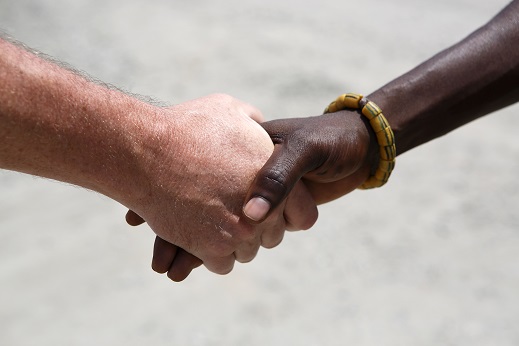Building bridges for Africa-EU scientific cooperation

Related topics
Agriculture & Forestry Innovation International cooperation Austria Denmark Finland France Germany Greece Netherlands Portugal Spain United Kingdom Switzerland Norway Cape Verde Egypt Ghana Kenya Madagascar Malawi Nigeria Uganda South Africa Rwanda Senegaldate: 06/08/2015
Project: Advancing SSA-EU cooperation in research...
acronym: CAAST-Net Plus
See also: CORDIS
The initiative CAAST-Net Plus and its predecessor CAAST-Net are cultivating new ideas, sharing knowledge and building working relationships to tackle major challenges affecting both Africa and Europe, from climate change to health and food security. In the process, they are building an unprecedented environment for the development of science and technology cooperation.
“Collaboration has advanced tremendously in recent years, and these projects have been an important contributing factor to that,” explains Andy Cherry, the CAAST-Net Plus coordinator at the Association of Commonwealth Universities in the United Kingdom.
While CAAST-Net, launched in 2008, enhanced the development of long-term EU-Africa collaboration in science and technology, CAAST-Net Plus, launched in 2012, focuses specifically on fostering bi-regional research in the critical areas of food and nutrition security, climate change and health. The project’s 26 participants include national authorities and agencies in Africa and Europe with a role in policy-making.
“We are addressing key challenges for both continents,” Cherry says. “For Africa, there is inevitably a focus on development, for example, using science and innovation to improve agriculture and food security for African populations and creating better healthcare systems. But these issues are no less important to Europe in light of social, demographic and economic challenges. There may be different perspectives and priorities but the benefits are mutual.”
Through thematic working groups, meetings and forums, CAAST-Net Plus is building bridges for collaboration between the two continents, focused not on short-term results but on long-term change that will help generate scientific and technological innovations to improve citizens’ lives on both sides of the Mediterranean. The large number of African governments involved in the project will help ensure new ideas and shared knowledge feed directly into future policy across the continent, while Europe stands to benefit from Africa’s resulting economic, social and technological development.
For that to happen, the project is addressing historical constraints to collaboration, from funding issues to political barriers.
“Consider project funding for example,” Cherry says. “On the one hand, it is hard to generate long-term impact from short-term projects that are expected to generate results in just a few years, and there is also the issue of ownership among stakeholders.”
He explains that because most funding for research and technology projects in Africa comes from Europe, African researchers find it hard to establish a sense of ownership for their work – an issue that could be addressed through new funding instruments in Africa or a joint Africa-EU funding platform.
As Eric Mwangi, CAAST-Net Plus Africa Region Coordinator at the Ministry of Education, Science and Technology in Kenya, points out: “African partners in Africa-EU partnerships need to be willing to fund programmes in health, climate change and food and nutrition security, and not only rely on research funding from other regions.”
Providing recommendations, fostering awareness and enriching policy-making to address these and other challenges will be among the key achievements of CAAST-Net Plus.
Check also our publication Investing in European success - EU-Africa cooperation in science, technology and innovation
CAAST-Net Plus for European Year of Develpment
